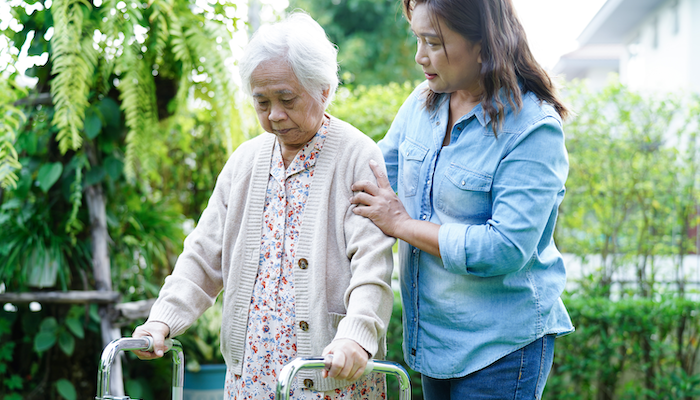Older drivers are generally more cautious, but also more vulnerable to injury during a crash. Good news: Keeping your relative safe on the road may be easier than you think. But it could require upgrading to a newer car. Choosing the right car features can improve safety, comfort, and ease of use—and reduce risk for your loved one.
Crash safety first
When assessing a car, review crash-safety ratings first. You can find ratings from the Insurance Institute for Highway Safety (IIHS) at www.iihs.org/ratings or www.SaferCar.gov.
Advanced safety features to consider for common problems of aging
- Looking over the shoulder. Choose a car that’s vintage 2018 or newer, when backup cameras became standard equipment. Parallel parking assistance helps by displaying a video view of the back end of the car. It also can include guiding lines and even alerts when the car is getting too close to an obstacle. Blind-spot monitoring alerts the driver when cars are approaching from the rear yet may not be visible in the mirrors.
- Difficulty seeing at night. Find a car with LED headlights. LED light spreads wider and projects farther than previous light technology. High-beam assistance may help your loved one feel more confident using the bright setting because it automatically changes to regular when it senses an approaching vehicle.
- Arthritis and stiff joints. “Proximity keys” that unlock the car when standing close by remove the need to struggle with fishing out a key to grasp and twist. They also provide for push-button start as well as opening of side doors, hood, and trunk. Heated seats and a heated steering wheel can ease back pain and stiff hands.
Assistive devices. Consult with an occupational therapy/driver rehabilitation specialist before adding nonfactory parts, such as hand controls and steering devices.
If you or your loved one has concerns about whether they should still be driving, get a professional driving assessment.
Are you worried about your loved one’s safety?
At Compassionate Community Care, we understand the unique needs of older drivers and offer expert advice on choosing the best car options to enhance safety, comfort, and ease of use. Don’t wait—reduce your loved one’s risk with the right car features. Contact us today at (415) 921-5038. Together, we can make the roads safer for everyone in San Francisco.










